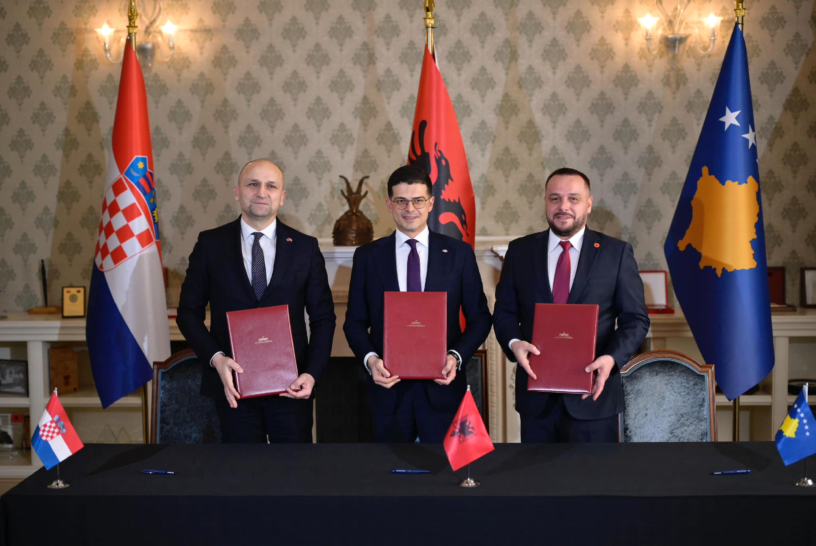On March 18, in Tirana, the defence ministers of Kosovo, Albania, and Croatia signed a declaration emphasizing trilateral cooperation in military training, hybrid threat response, and defence industry development. This memorandum of cooperation in defence and security signed between Kosovo, Albania, and Croatia has reignited tensions in the Balkans, with Serbian President Aleksandar Vučić denouncing it as an “arms race” and a violation of sub regional agreements. The agreement aligns with NATO’s broader security framework and underscores the signatories’ commitment to Euro-Atlantic integration. His reaction, however, raises questions about Serbia’s own military build-up, geopolitical calculations, and the broader implications for regional stability.
Vučić’s alarmist response, portraying the agreement as a direct threat to Serbia, suggests a strategic effort to frame Serbia as a victim rather than an actor with its own military ambitions. Serbia, which has consistently deepened military cooperation with Russia and China, has increased its defence budget and procured advanced weapons, including combat drones and missile systems. If regional militarization were truly Vučić’s concern, Serbia’s own policies should be scrutinized under the same lens.
The Hypocrisy of Serbia’s Security Narrative
Vučić’s claim that NATO was unaware of the memorandum seems designed to cast doubt on its legitimacy. However, given that two NATO member states—Albania and Croatia—are signatories, the argument holds little weight. Furthermore, NATO’s Secretary-General Mark Rutte did not express any concern over the agreement, focusing instead on strengthening NATO-Serbia relations.
Serbia’s assertion that the memorandum violates the 1996 Agreement on Sub regional Arms Control appears selective. The agreement, established under the Dayton Accords, was designed to limit military capabilities in the post-Yugoslav space. However, Kosovo, which declared independence in 2008, was never a signatory, nor was Albania. Moreover, Serbia itself has openly expanded its military cooperation beyond regional frameworks, particularly with non-Western actors, without facing the same self-imposed constraints.
Security Dilemmas and Strategic Messaging
Serbia’s opposition to Kosovo’s military development is not new. Since the transformation of the Kosovo Security Force into the Kosovo Army in 2018, Belgrade has fiercely resisted its international recognition and expansion. The latest agreement represents a step forward in Kosovo’s security positioning, prompting predictable backlash from Serbia, which still claims Kosovo as its territory despite EU-mediated dialogue for normalization.
Kosovo’s Foreign Minister, Donika Gërvalla, dismissed Vučić’s remarks as aggressive and a breach of the Brussels Agreements, while Croatian Prime Minister Andrej Plenković was even more direct, asserting that Croatia does not need Serbia’s or NATO’s approval for such agreements. These responses reflect a growing regional consensus that Serbia cannot dictate the security policies of its neighbours.
Beyond Rhetoric: The Future of Stability in the Balkans
Vučić’s reaction is part of a broader strategy to maintain domestic political support by framing Serbia as under siege, a narrative that resonates with nationalist elements in the country. However, the Balkan region’s stability depends on cooperation rather than confrontation. The trilateral agreement does not constitute an offensive manoeuvre against Serbia but rather a measure to strengthen regional security in line with NATO standards.
If Serbia genuinely seeks stability, it must acknowledge the right of neighbouring states to engage in sovereign defence cooperation. Otherwise, its opposition appears less about security and more about maintaining geopolitical leverage over Kosovo and other Western-aligned countries in the region. The real question is not whether the Kosovo-Albania-Croatia agreement threatens Serbia but whether Serbia is willing to abandon its zero-sum approach to regional relations in favour of genuine cooperation.
Written by our correspondent A.T.



